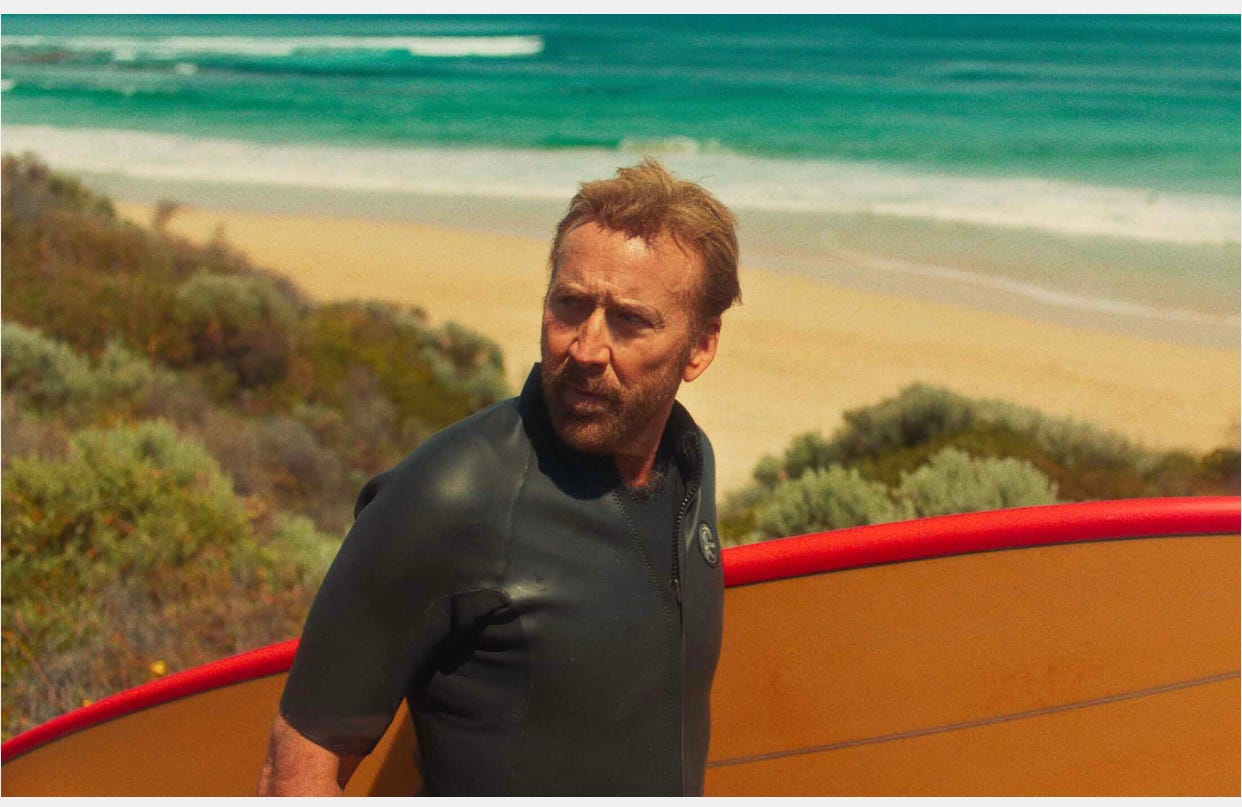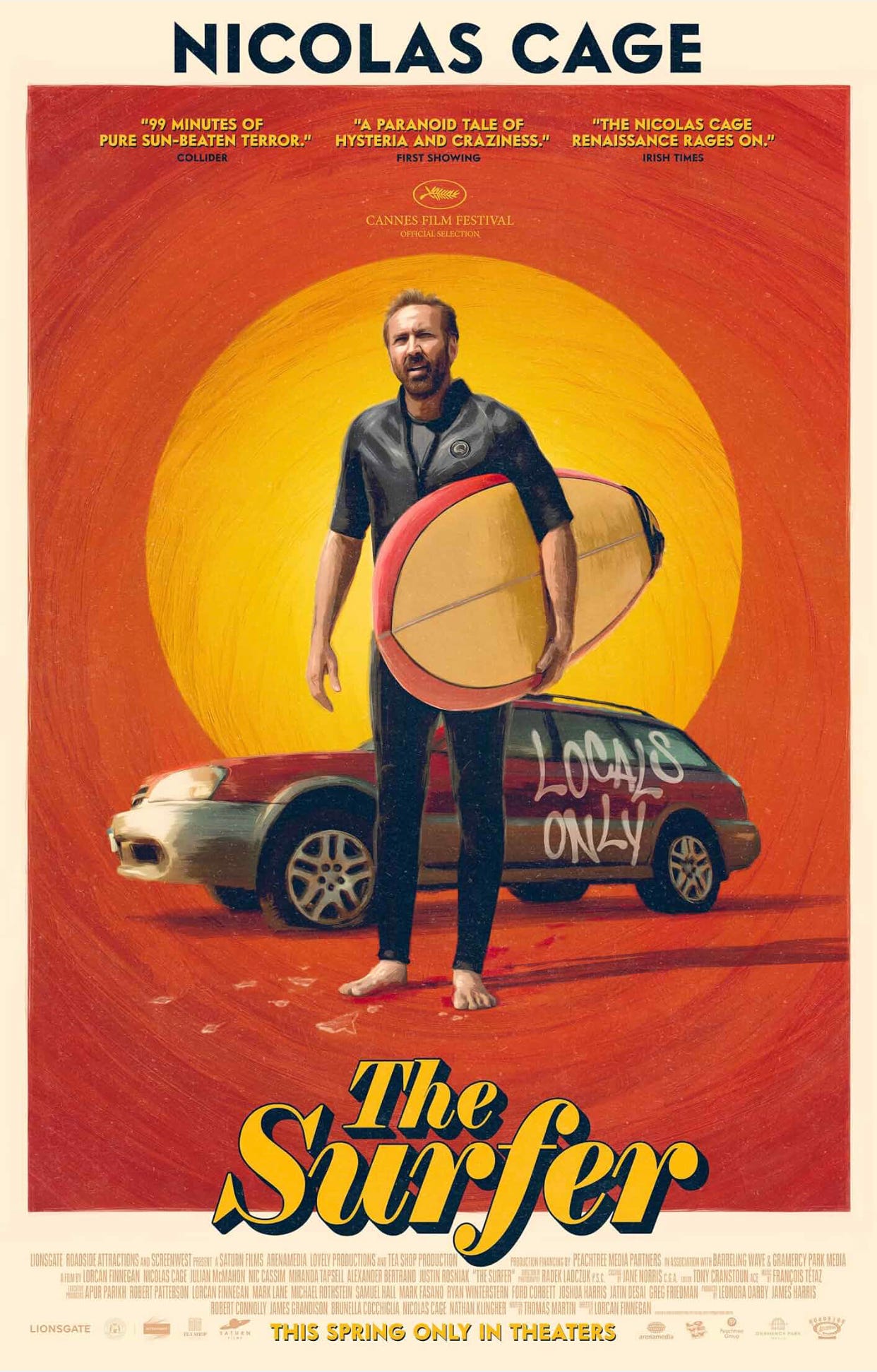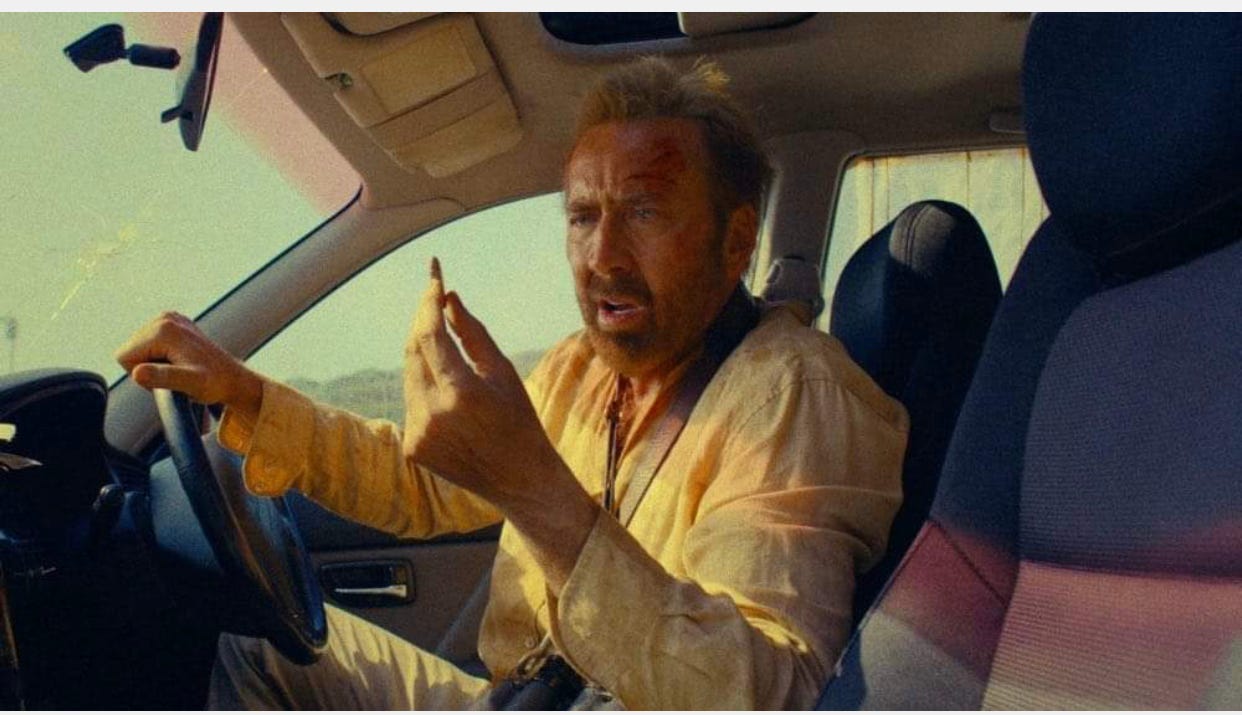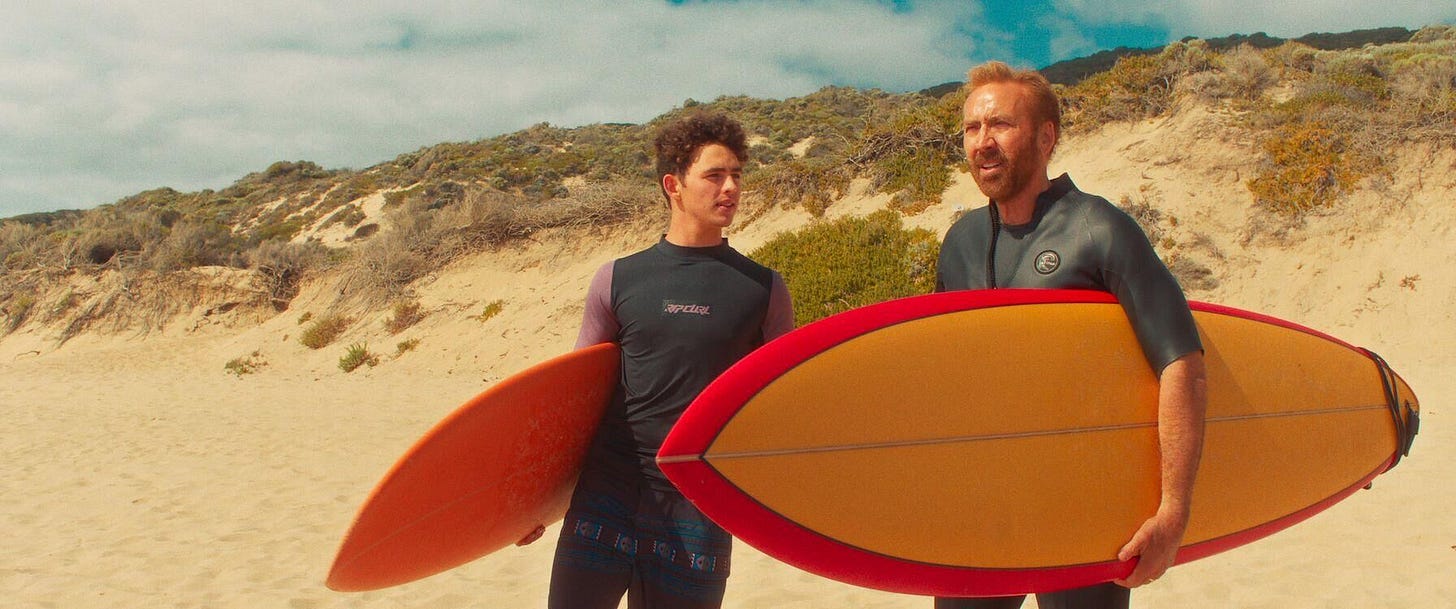Nicolas Cage adds another fascinating character to his cv with (and as) The Surfer, an intriguing psychological thriller about a middle-aged man who wants to surf a wave in a place he once called home.
Written by Thomas Martin and directed by Lorcan Finnegan, who are both from Ireland, the movie is set on and/or near a beach somewhere on the Australian South East Coast. The duo both have an affinity with the New Wave of Australian movies, and yes it’s hard not to think about Peter Weir a couple of times while watching this film. The Surfer is also inspired by Raymond Cheever’s short story The Swimmer, which was adapted into a movie, also called The Swimmer (1968), starring Burt Lancaster.
But back to the beach, because Luna Beach is the almost mythical place where the main character, simply called The Surfer (Cage) grew up. After his father’s untimely death, however, his mother took him to California, which explains his American accent.
All his life, he tells us, he’s been working his way back to this place and now he is nearing the end of his odyssey: he is about to buy back the house on a cliff that belonged to his grandfather. He wants it to be a home for his own teenage son (Finn Little), and for his estranged wife, Helen (Brenda Meaney), who just wants him to sign the divorce papers.
But when The Surfer wants to take his son surfing on Luna Beach he is accosted by a couple of tough guys who deliver a simple message: don’t live here, don’t surf here!
The Surfer is willing to take a stand, but eventually he is forced to take his son home. There a far too many Bay Boys (as the local gang is called) in the water to take on.
The next day, however, he returns. The price for his dream home has gone up and his wife has told him on the phone that she is pregnant. These sort of complications can set something off in a man’s head, particularly if he’s on the verge of a mid-life crisis that may cause a mental breakdown.
Still, The Surfer now has a clear purpose in life: he will surf here, on Luna Beach, if it’s the last thing he does. So he butts heads with all and sundry, including the local cop (Justin Rosniak), and quickly becomes the worse for wear. First his car goes, then his phone and watch. His clothes have coffee spilled all over them. He goes from well-off family man to degenerate madman over the course of a couple of days, and of course this is the type of character that Cage loves to play - and plays so well.
The Surfer is a fascinating (and occasionally funny) character study that touches on themes like tribalism and, of course, toxic masculinity, which is something that Cage’s character himself is guilty of too.
Visually it’s also very beautiful, the striking, saturated colors accentuating the heat you feel on Luna(tic) Beach. The score by François Tétaz, seemingly inspired by film music and various assorted Exotica of the fifties and sixties, adds to the sense of alienation the Surfer feels. As Scally (Julian McMahon, from Nip/Tuck), the leader of the Bay Boys, who are perhaps more of a cult or a sect than a real gang, tells him: ‘before you can have everything, you must experience nothing.’
Or to phrase it another way: ‘before you can surf, you must suffer.’ And so the Bay Boys chant at night: ‘Suffer… surfer…suffer…surfer…’
The relationship between The Surfer and Scally is maybe the most interesting one in the movie. At first it seems that Scally just wants The Surfer gone. But then he it seems he is testing him. Seeing how far he can go, if he can push him over the edge. Seeing how much he is willing to suffer, before he may actually become part of the Bay Boys.
Cause The Surfer desperately wants to belong, he wants to be part of the tribe, even if he thinks he doesn’t. His whole rivalry with Scally is based on the kind of alpha male competitiveness that you see in so many places, in boardrooms or in politics. But also in sports or even the arts.
In the end it’s all a pissing contest, even if The Surfer thinks he does it all for his family, while Scally undoubtedly believes he’s doing his bit for white conservatives, full-blown racists and other assorted creeps.
The kindest character in the film is an indigenous woman, The Photographer (Miranda Tapsell), who has as much right (if not more) to the beach as the white characters, but who can only play the role of sympathetic observer. The Surfer thinks he sees her, and gladly accepts her help, but his ego is too big to understand her.
The Surfer is a movie that lingers in the mind. I suppose Lorcan Finnegan wants to do original movies - this is his fourth, and they all have found success on the festival circuit - but if he would ever want to ‘madmaximize’ The Surfer he could consider both a Bay Boys prequel (telling Scally’s origin story) and a Surfer Sequel, in which Cage’s character takes over and leads the Bay Boys into the next chapter of their existence.
At 99 minutes, The Surfer moves at a slow, deliberate pace, sucking you in, without ever quite becoming the complete horror psych-out perhaps suggested by the marketing.
But it’s slow burn freakiness is absolutely worth your time.
I give it four stars!
Note: The Surfer had its world premiere in the Midnight Section of the Cannes Film Festival. Since then its played the festival circuit, while also getting a theatrical release in various countries. It is now in release in Canada, the United States, Poland and The Netherlands.







Hi Oene,
Thanks for the great review! This is one of the few new movies I'm interested in seeing but sadly it's not showing anywhere near me here in Nebraska. Now, after reading your review, I'm more excited to see it than ever. Hopefully, it will begin streaming somewhere soon.